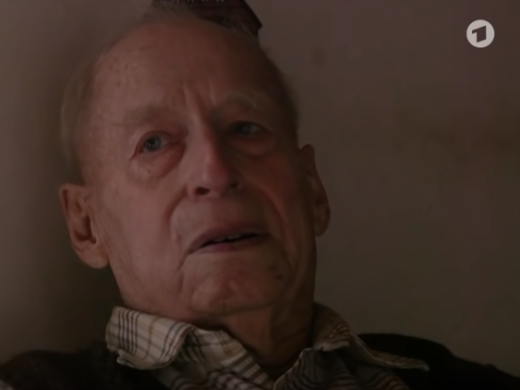Former SS soldier sentenced to death for Nazi massacre dies, aged 96, after escaping justice
'There’s another reason for me not to end up in hell, so I don’t meet him there,' said mayor of French village where men were killed

Your support helps us to tell the story
From reproductive rights to climate change to Big Tech, The Independent is on the ground when the story is developing. Whether it's investigating the financials of Elon Musk's pro-Trump PAC or producing our latest documentary, 'The A Word', which shines a light on the American women fighting for reproductive rights, we know how important it is to parse out the facts from the messaging.
At such a critical moment in US history, we need reporters on the ground. Your donation allows us to keep sending journalists to speak to both sides of the story.
The Independent is trusted by Americans across the entire political spectrum. And unlike many other quality news outlets, we choose not to lock Americans out of our reporting and analysis with paywalls. We believe quality journalism should be available to everyone, paid for by those who can afford it.
Your support makes all the difference.A former SS soldier who was convicted of a wartime massacre, but never served time for the crimes he committed during the Second World War in France, has died.
Karl Münter, who was 96 at the time of his death in northwestern Germany was a sergeant with the 12th SS Panzier Division “Hitler Youth”.
Shortly after the war Münter and his fellow officers were found guilty of war crimes in relation to an April 1944 massacre of 86 civilian men in Ascq, France.
The victims, many of whom were teenagers and elderly had been arrested, lined up and shot in retaliation for local partisans blowing up a railway line that was being used to shuttle German troops to Normandy.
Münter was convicted in absentia for his part in the killing and sentenced to death. However, because it was years before he was tracked down his sentence was never carried out.
Upon learning of Münter’s death, the mayor of Villeneuve-d’Ascq, Gerard Caudron, said: “There’s another reason for me not to end up in hell, so I don’t meet him there.”
Münter had, for decades, evaded capture. It was 2013 when he was finally tracked down to the Lower Saxony village where he lived – in close proximity to the great-grandson of one of the Ascq victims.
Despite his conviction the statute of limitations had passed, meaning Münter’s his crime could no longer be prosecuted.
German state lawyers opened up a new investigation on the suspicion of him being an accessory to murder, but were unable to charge him again for the same crime.
Earlier this year prosecutors in Hildesheim charged Münter with incitement after he appeared on a television documentary last year in which he defended the shooting of the prisoners in Ascq and disputed the Nazi Holocaust. Holocaust denial is a crime in Germany.
In the documentary, he said he had not shot anyone personally in Ascq, but maintained that the killings were justified because the prisoners had tried to escape.
“If I arrest the men, then I have the responsibility for them and if they run away, I have a right to shoot them,” he said.
He also disputed the fact that six million Jews were killed in the Holocaust, saying “we didn’t have that many Jews here at that time, that’s already been disproved”.
ARD also reported that Münter had close ties to neo-Nazi groups in recent years, talking to them about his experiences in the SS.
His incitement case was still pending trial when he died.
Additional reporting by PA
Join our commenting forum
Join thought-provoking conversations, follow other Independent readers and see their replies
Comments